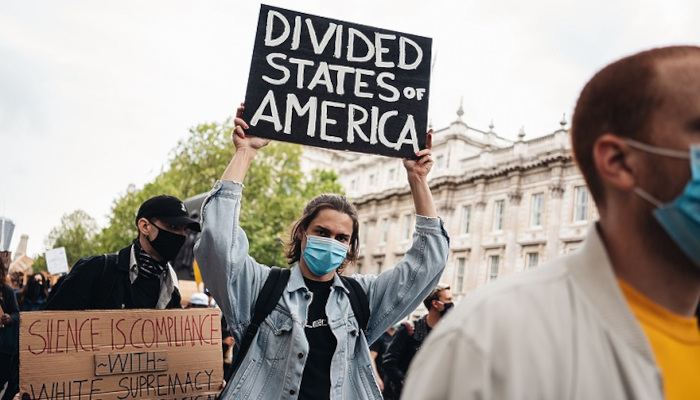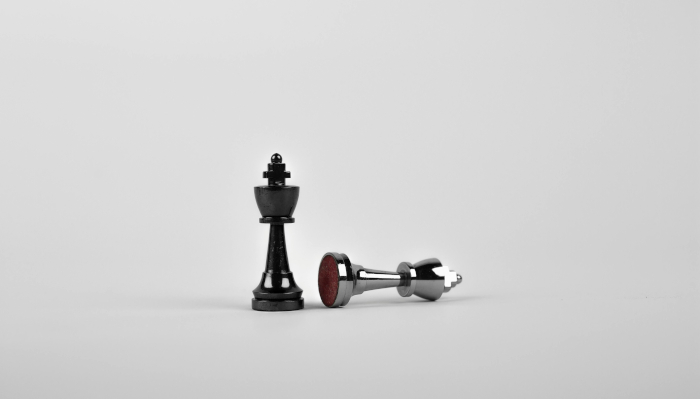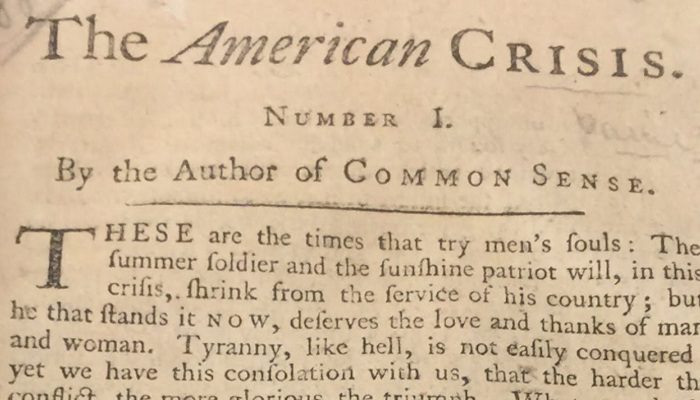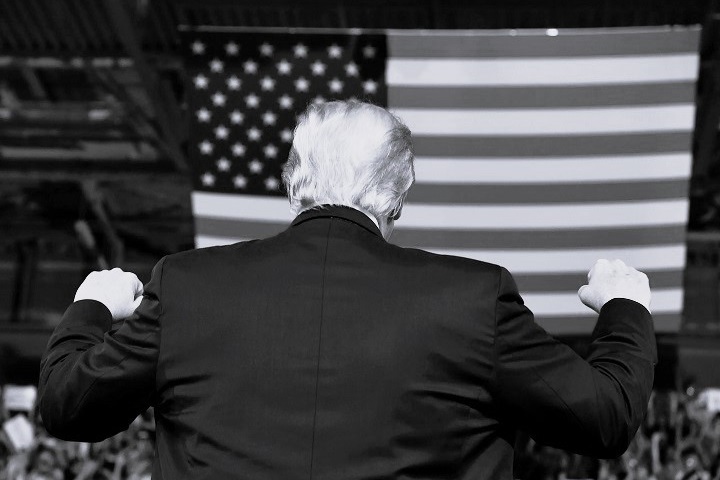
Many Americans feel broken, and people are split on immigration and very divisive issues like gender or abortion and go for Trump. His victory in Iowa is proof of this. But the country is doing better than ever. A belief crisis blinds many. The U.S. needs to restore its cultural unity, starting with accepting the reality of a new creeping war that could defeat the nation and smash the world.
Perhaps judging a country from afar is vain and impossible, especially one so openly full of contradictions and blinding lights. These lights make things harder to see than shadows in a dark room – they totally cancel one’s vision. Yet, America is the hub and the keystone of the present world system, and anything happening there has tectonic reflexes elsewhere. The presidential choice in November will sway the course of wars in Ukraine and the Middle East, the fate of continents, Asia around China, and Europe around the E.U. The world order will be dramatically changed, perhaps not for the best.
The presidential election is a global issue, and although we can’t vote and can’t be elected in it, we feel a duty to voice our concerns and offer them to American fellows as a word of counsel. America’s plights are our own plight, as we can’t say we are not Americans.
These elections are actually about Biden and ought to be so because he is the incumbent president. But they seem to be about ex-president and now favored contender in the polls Donald Trump. Perhaps it is right to start there.
Bret Stephens took an original, critical view of his strengths[1].
- “Trump got three big things right — or at least more right than wrong. Arguably, the single most important geopolitical fact of the century is the mass migration of people from south to north and east to west, causing tectonic demographic, cultural, economic, and ultimately political shifts…
- The broad direction of the country Trump rode a wave of pessimism to the White House… More than 12% of all adult males had a felony conviction on their record, leaving them in the shadowlands of American life. And there was a palpable sense of economic decline, with fewer and fewer younger Americans having any hope of matching their parents’ incomes at the same stages of life. Far too little has changed since then. Labor-force participation remains essentially where it was in the last days of the Obama administration. Deaths of despair keep rising. The cost of living has risen sharply, and while the price of ordinary goods may finally be coming down, rents haven’t. Only 36% of voters think the American dream still holds true, according to a recent survey, down from 48% in 2016. If anything, Trump’s thesis may be truer today than it was the first time he ran on it…
- The question of institutions that are supposed to represent impartial expertise, from elite universities and media… those institutions did their own work in squandering, through partisanship or incompetence, the esteem in which they had once been widely held. How so? Much of the elite media, mostly liberal, became openly partisan in the 2016 election — and, in doing so, not only failed to understand why Trump won but probably unwittingly contributed to his victory. Academia, also mostly liberal, became increasingly illiberal, inhospitable not just to conservatives but to anyone pushing back even modestly against progressive orthodoxy.”
He warns that the appeal to democracy, strongly voiced by Biden last month, could fall flat with moderate voters. Perhaps there is a new and old impatience with the cumbersome and roundabout ways of the democratic process. It is less effective day-to-day and does not communicate well as one man alone. There is skepticism about trying Trump in court now on charges difficult to understand for most people, like tax fraud, or that come late, like those about the January 6 2021 “insurrection.”
On these pages, on January 7, 2021, we called the urgency to prevent the return of that Epiphany[2] because tolerating the intolerant destroys the basis of a democratic process. In fact, Trump flaunts and breaks democratic rules and conventions, and he has a comprehensive plan to reform all democratic institutions.
His opponents like Ian Bassin, in President Obama’s team, reportedly argued[3]: “Our democracy rests on a foundation of trust — trust in elections, trust in institutions. And you know what scares me the most about Trump? It’s not the sledgehammer he’s taken to the structure of our national house. It’s the termites he’s unleashed into the foundation.”
Still, Stephen’s arguments may cut little or no ice with people who feel broken without care from anybody. Stephen astutely writes: “Brokenness has become the defining feature of much of American life: broken families, broken public schools, broken small towns and inner cities, broken universities, broken health care, broken media, broken churches, broken borders, broken government. At best, they have become shells of their former selves. And there’s a palpable sense that the autopilot that America’s institutions and their leaders are on — brain-dead and smug — can’t continue… If you’re saying it’s ‘Morning in America’ when 77% of Americans think the country is on the wrong track, you’re preaching to the wrong choir — and the wrong country.”
Americans feel crime is going up, and it is a serious political issue. However, recent FBI data show that violent crime actually dropped nationwide in 2022 while property crime jumped.
The broken people are not only with Trump; they are also with the democrats, believing sometimes weird theories. They stopped trusting mainstream America. Maybe this is the real heart of the matter. Maybe in America, the social difference is no longer between blue or white collar, that dominated much of the past century. It’s about being broken or not. Perhaps most feel broken or that being broken and dealing with broken people is part of their lives. They are branded and scorched in their soul for it and don’t see another chance.
But the United States was founded by people searching for a second chance, a new beginning, and redemption. “Broken” is part of the American identity. But these people may feel mainstream society, controlled by the elites, doesn’t give them a second chance. Then, they think they have to take things into their own hands. But it’s impossible in modern and complex societies. Somebody has to help them out. So, the question becomes: who is going to give them redemption?
Moreover, it is not just about being broken. It is about real divisive issues. The Biden administration’s support for the gender concept, abortion, indiscriminate backing of new immigration from the Middle East (now protesting against Israel, a traditional darling U.S. darling), and what is felt as a hurried dismissal of conventional culture are all very irksome for many people in the U.S. The press may blow out-of-proportion stories of kids being exposed or encouraged to sex changes in schools. Still, the fact that the Democrats do not invite prudence and wisdom is portrayed as a violent upending of old American values. They can’t be just waved away with easy gestures. The Iowa caucus proves they cut a lot of ice with many people. These new cultural sentiments also find little support abroad.
This and the sense of being broken can make a potent political alchemy.
A Twofold Issue
The problem is the issues Trump raises are right. How the Democrats or other Republicans deal with them may not be right. But Trump’s answers so far are equally beyond wrong; they are flimsy. However, if there are no better answers to true issues, even the wrong answers will count.
Still, there is a difference between words and facts. Trump fell at the end because he failed to confront COVID. It was a difficult situation, but unexpected disasters make or destroy leaders. The response to the exceptional 2004 Tsunami transformed Thaksin from one of the occasional Thai Prime Ministers to an icon of the country. The 2008 Sichuan earthquake made grey then-Chinese President Hu Jintao and Premier Wen Jiabao popular. Even in the utter destruction of the 2023 Turkish earthquake, with a death toll multiplied by shoddy construction permitted by the government, Erdogan eventually took things into his own hands and turned the national mood.
During COVID, Trump had all the elements to fully grasp the moment’s gravity and act promptly. He should have cut flights and direct contact around China. Beijing itself went into lockdown, thus signaling to the rest of the world that it should protect against the spread of the disease abroad. He didn’t. Despite all the relevant information he had, he dithered, went into denial, and changed his mind repeatedly.
The COVID experience alone may cast doubt on his ability to confront dire, unpredictable situations. In the past couple of years, there have been plenty of them, from Ukraine to Gaza, and President Joseph Biden has always risen to the occasion. In the future, times will be even more difficult. Would Trump be able to cope with them, or will he flop confusedly?
Then it is a twofold issue – Trump per se and the broken people following him or on the left – all believing conspiracy theories.
There’s an intellectual belief crisis in America. There are cultural clashes, divides about gender, race, origin, class. This has shaped into tribalism that lost the middle ground where Americans used to meet and get together. This belief crisis makes people deaf to objections about their distorted view of reality. Without a shared view, people from different camps talk past each other.
Perhaps it is also because most people are not clear where we are in history now. There is no end of history or trust in a never-ending story of global liberal markets unfettered by burdensome politics. There is no clash of civilizations, as things turned out to be far more complicated than a few arbitrary lines drawn on a cultural map. We are not in Cold War II, as the U.S. is apparently reluctant to use this label that would precipitate memories of defense mechanisms unfit for the present situation. As the Pope said, we are in a creeping, crawling world war in pieces.
Perhaps, if we collectively recognize it and acknowledge the drama of the historic moment, we may hope to crawl back to peace. Perhaps Americans, both democrats, and republicans, should openly recognize it, although the word “war” may start all kinds of troubles in the U.S. inflammable state of affairs.
Trying to be unbiased, we see Biden possibly doing a much better job than he is credited. The economy is booming like in the 1950s. Biden launched a series of plans to push a technological and infrastructure revolution. He is successfully and cautiously handling three conflicts at once (Ukraine, Gaza, China). These plans and this attitude should be continued with or without him.
What is wrong? Inflation and immigration? More should be said and better, but both are very complicated issues that can’t have a simple answer. Incidentally, both fuel the booming economy; labor and investment are necessary now and for future growth.
What is true is that the USA works; it is in the middle of massive, positive, and tough changes. Some forces seem keen on stopping for some half-baked ideas of power concentration, hiding only a power grab. This power grab can destroy the USA as it is and the world as it is and precipitate America in an unprecedented economic, social, and political crisis, opening the gates to Russian president Vladimir Putin ruling the world and a post-USSR ghastly vindication.
David Axelrod[4] stresses that Biden needs to provide a vision for the future of America. He has to say something reasonable about migration and mutual tolerance and set a repetition in communicating that. America is a nation about the future, not the past. Biden is an old guy, but it’s an advantage; he has a sense of history. Because he’s old and has a sense of time, he can project the USA 80 years ahead. It is what the world needs now to see things together again. Biden or a possible republican president should work to unite the country.
The U.S. won the Cold War first by succeeding in re-establishing a world “cultural hegemony” with presidents Carter (human rights) and Reagan (economics and liberalism) after the disasters of the war in Vietnam and the 1960s student movements worldwide.
Today, it is the same point. Trump does not establish an American global cultural hegemony; he shatters it.
Can China establish cultural hegemony? It was doing it with the BRI (Belt and Road Initiative), but it underestimated its complexity and was misguided by minimal economic and low-end political calculations. The BRI proposed de facto a world before America’s discovery but then with America’s existence and thus against America. Before the discovery of America, the world was torn apart by different worldviews in different areas. The order was kept because the different regions were not in direct contact with each other simultaneously.[5]
With the discovery of America and the Magellan trip around the globe, the world grew with more direct geographic contacts and even shorter time lapses. It needed a unitary worldview, and the West provided it over the next 500 years.
Still, China is apparently rethinking its whole approach to the one BRI, linking it more consistently with its strategy and long-term plans, as Shi Yinhong, professor of International Studies at China’s People’s University, wrote[6]. China’s president, Xi Jinping, also offered the U.S. to join the BRI on his November trip to San Francisco. China, of course, doesn’t have the problem of building a domestic consensus. However, exporting cultural consensus from an authoritarian country has different sets of questions.
If America does not regain its unity, there is a risk of a shattered world without the past geographic and temporary separation. It would be a recipe for chaos starting right at the center of the global system – the U.S. The effects of the shattering may be incalculable.
This is happening already. Graham Alison warns of the “Trump’s put.”
“Some foreign governments are increasingly factoring into their relationship with the United States what may come to be known as the “Trump put”—delaying choices in the expectation that they will be able to negotiate better deals with Washington a year from now because Trump will effectively establish a floor on how bad things can get for them. Others, by contrast, are beginning to search for what might be called a ‘Trump hedge’—analyzing how his return will likely leave them with worse options and preparing accordingly. Russian President Vladimir Putin’s calculations in his war against Ukraine provide a vivid example of the Trump put. In recent months, as a stalemate has emerged on the ground, speculation has grown about Putin’s readiness to end the war. But as a result of the Trump put, it is far more likely that the war will still be raging this time next year. Despite some Ukrainians’ interest in an extended cease-fire or even an armistice to end the killing before another grim winter takes its toll, Putin knows that Trump has promised to end the war ‘in one day.’”
It is the dominant factor in all geopolitics now also because, as the Chinese would put it 不怕一万就怕万一 , which is something like: don’t think of the 99,99% possibility, just be afraid of the 0,01% chance. In this sense Trump’s only presence is disruptive, as he promises disruption, and nobody knows what kind of disruption he would bring. He is a totally wild card in a world already on the brink of chaos. The problem is not our preferences but the possibility of drastic discontinuity of U.S. policies and the relatively small (but not negligible) chance it could happen.
The combination of these two elements already today creates chaos in foreign politics because people put off choices as a measure of prudence. Still, the American people will vote according to American domestic concerns, dominated by the sentiment of being broken. Here, the split in American society is perhaps deepest.
[1] See https://www.nytimes.com/2024/01/11/opinion/columnists/donald-trump-election.html?unlocked_article_code=1.NE0.kJ64.lydjAC1nOqpD&smid=url-share
[2] https://www.settimananews.it/informazione-internazionale/epiphany-2021-attack-capitol-values/#comments
[3] https://www.politico.com/news/magazine/2024/01/12/donald-trump-indictments-legal-system-00135151
[4] https://www.politico.com/news/magazine/2024/01/12/david-axelrod-obama-biden-2024-00135194
[5] See https://aeon.co/essays/the-first-world-orders-were-not-european-they-came-from- asia?utm_source=Aeon+Newsletter&utm_campaign=e56efdc064- EMAIL_CAMPAIGN_2024_01_12&utm_medium=email&utm_term=0_- b43a9ed933-%5BLIST_EMAIL_ID%5D
[6] http://hk.crntt.com/crn-webapp/touch/detail.jsp?coluid=7&kindid=0&docid=106775353








